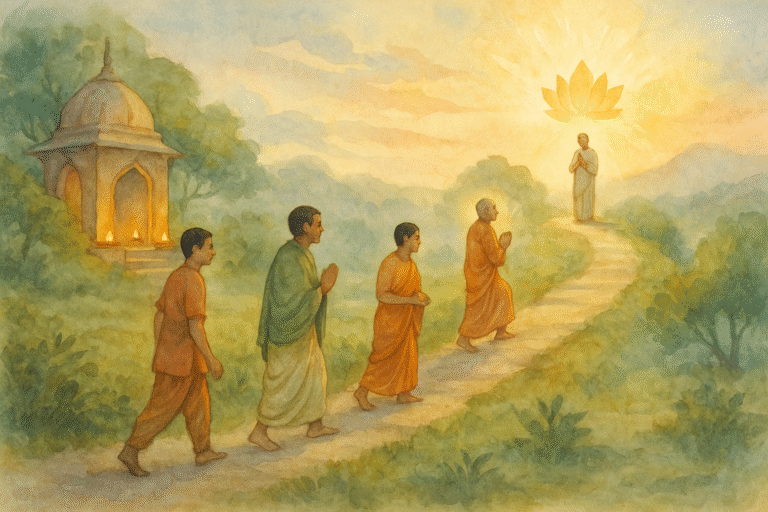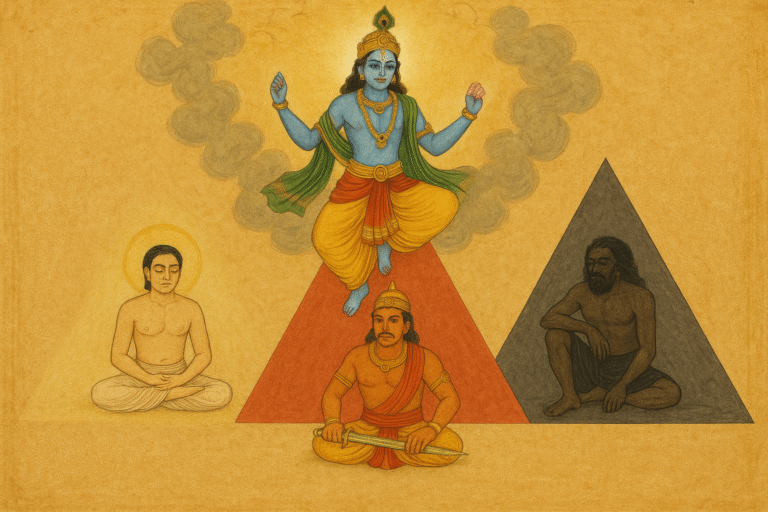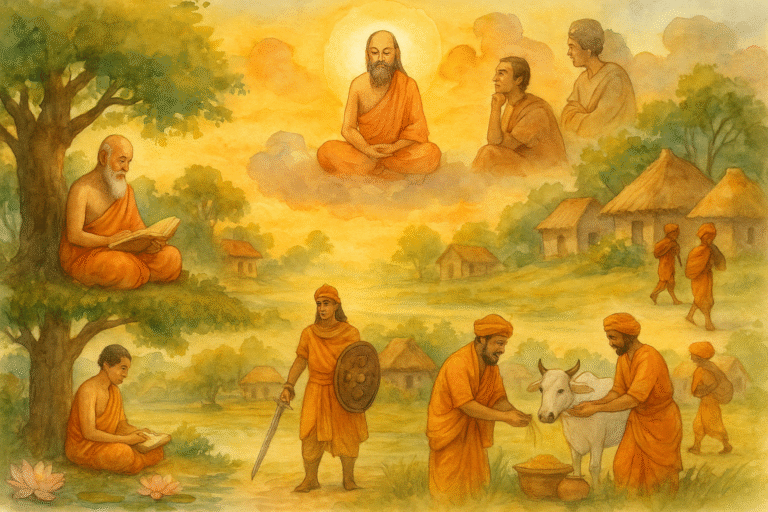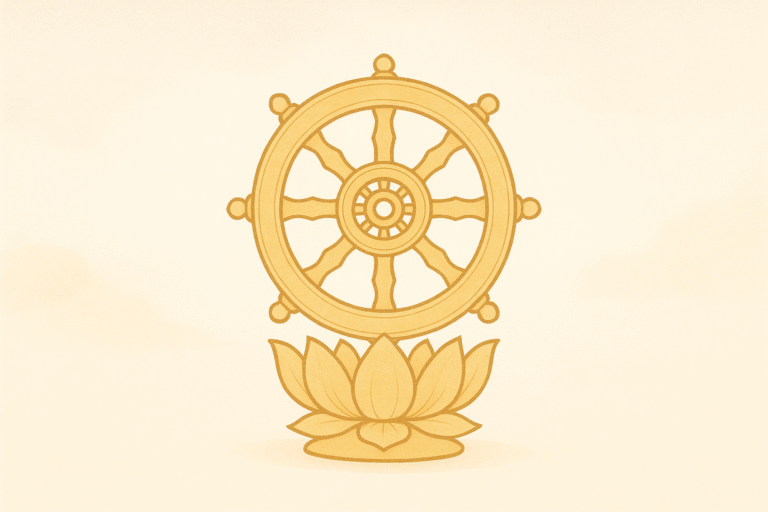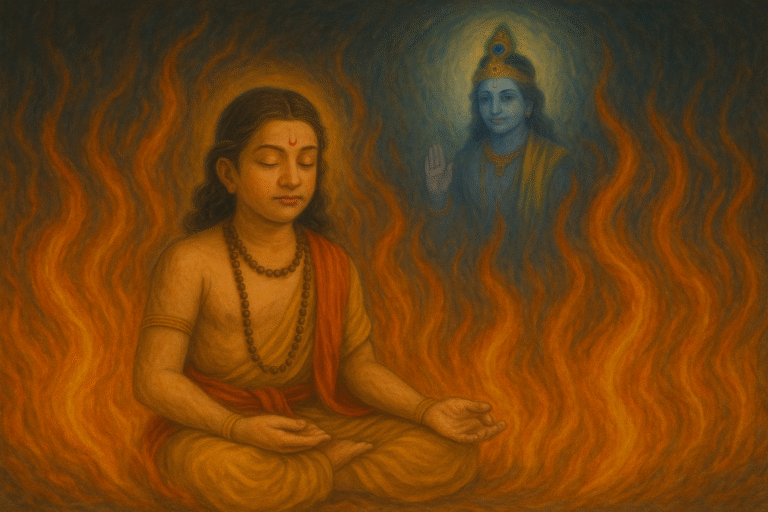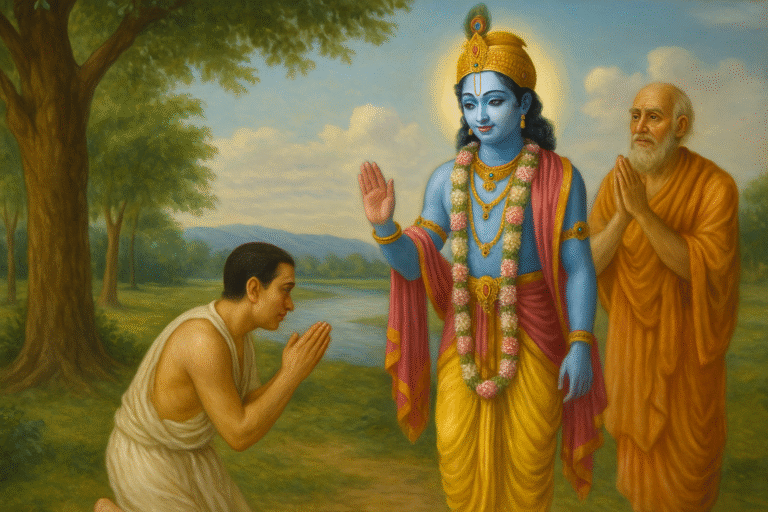🌩️ Three Types of Miseries in Life — and the Only Way Out
The Vedas describe three types of unavoidable miseries: from within (body/mind), from others, and from nature. These sufferings remind us the material world is not our home. The only true solution is Krishna consciousness — to surrender to God, transcend suffering, and awaken to our eternal blissful identity.
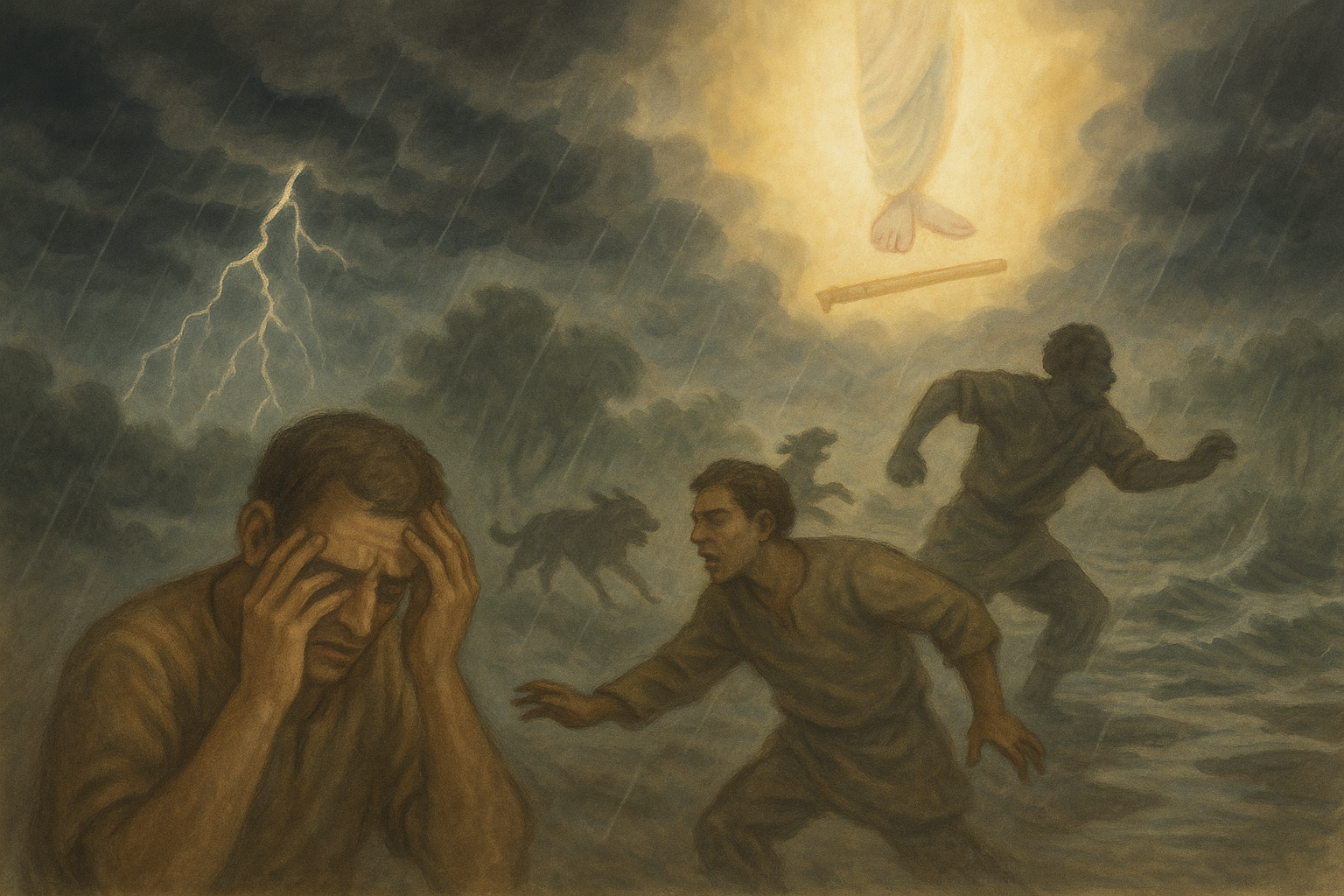
“Material life is never without suffering — it is simply a question of when and how it strikes.”
— Srila Prabhupada
Despite all technological progress and worldly achievements, human beings continue to suffer. Why? Because the world we live in — the material world — is designed with built-in miseries. According to the Vedas, these sufferings fall into three broad categories, collectively known as Trividhā Duḥkha — the threefold miseries.
1. Adhyātmika – Misery from the Self (Body and Mind)
आध्यात्मिक – शरीर और मन से उत्पन्न दुख
These are miseries that arise from within us — either from the body (like disease, fatigue, pain) or the mind (like anxiety, depression, confusion, overthinking).
🔹 Example: A person may have all wealth but still feel miserable due to insomnia or mental stress. Another may suffer from chronic illness, despite having access to the best care.
“This body is a source of suffering. No one wants disease or old age, but they come inevitably.”
2. Adhibhautika – Misery from Other Living Beings
आधिभौतिक – अन्य जीवों से उत्पन्न दुख
These are sufferings caused by other living entities — humans or animals. This includes violence, jealousy, competition, exploitation, and harm caused by enemies, pests, or even loved ones.
🔹 Example: A person may be harassed by enemies, bitten by mosquitoes, or cheated by business partners. Despite all precautions, we cannot fully protect ourselves from others.
“So long as we are in this world, there will be envious persons, unpleasant interactions — these are natural.”
3. Adhidaivika – Misery from Higher Forces or Nature
आधिदैविक – प्रकृति या दैविक शक्तियों से उत्पन्न दुख
These miseries are beyond human control, caused by natural disasters, fate, or divine will. Examples include earthquakes, floods, pandemics, extreme weather, or even the mysterious forces that disrupt plans despite our best efforts.
🔹 Example: A business may collapse due to a sudden cyclone. A virus may bring the world to a halt. These are called “acts of God.”
“One may be powerful, rich, and famous — yet a small virus or a natural disaster can shake their world. That is material nature.”
🪷 Why These Miseries Exist?
In the Bhagavad Gita (13.9), Lord Krishna explains:
“Janma-mṛtyu-jarā-vyādhi-duḥkha-doṣānudarśanam”
“One should always see the miseries of birth, death, old age, and disease.”
Srila Prabhupada taught that these miseries are not accidents — they are reminders. They remind us that this material world is not our permanent home. It is a temporary place filled with suffering, meant to awaken our desire to return to Krishna — to the spiritual world, where there is no birth, death, or suffering.
🔑 The Only Way Out: Krishna Consciousness
Trying to eliminate these three miseries without spiritual realization is like trying to stop the ocean’s waves with your hands. Srila Prabhupada emphasized again and again:
“We cannot stop suffering by artificial means. The only remedy is to surrender to Krishna, who is the controller of all miseries.”
When we:
- Chant the Hare Krishna maha-mantra,
- Serve devotees,
- Read Bhagavad Gita and Srimad Bhagavatam,
- Live a life of devotion…
…we become spiritually immune. The miseries may still touch our body, but they can no longer disturb our consciousness. That is true liberation — not escaping miseries, but rising above them.
🙏 Final Words
Everyone is searching for peace, but the world offers only temporary relief. Real peace comes not by escaping suffering, but by transcending it through Krishna consciousness. These miseries are not punishments — they are wake-up calls. They urge us to take shelter in the lotus feet of Lord Krishna, the eternal source of peace and bliss.
“dukhalayam ashashvatam” – This world is a place of misery and impermanence.
— Bhagavad Gita 8.15

